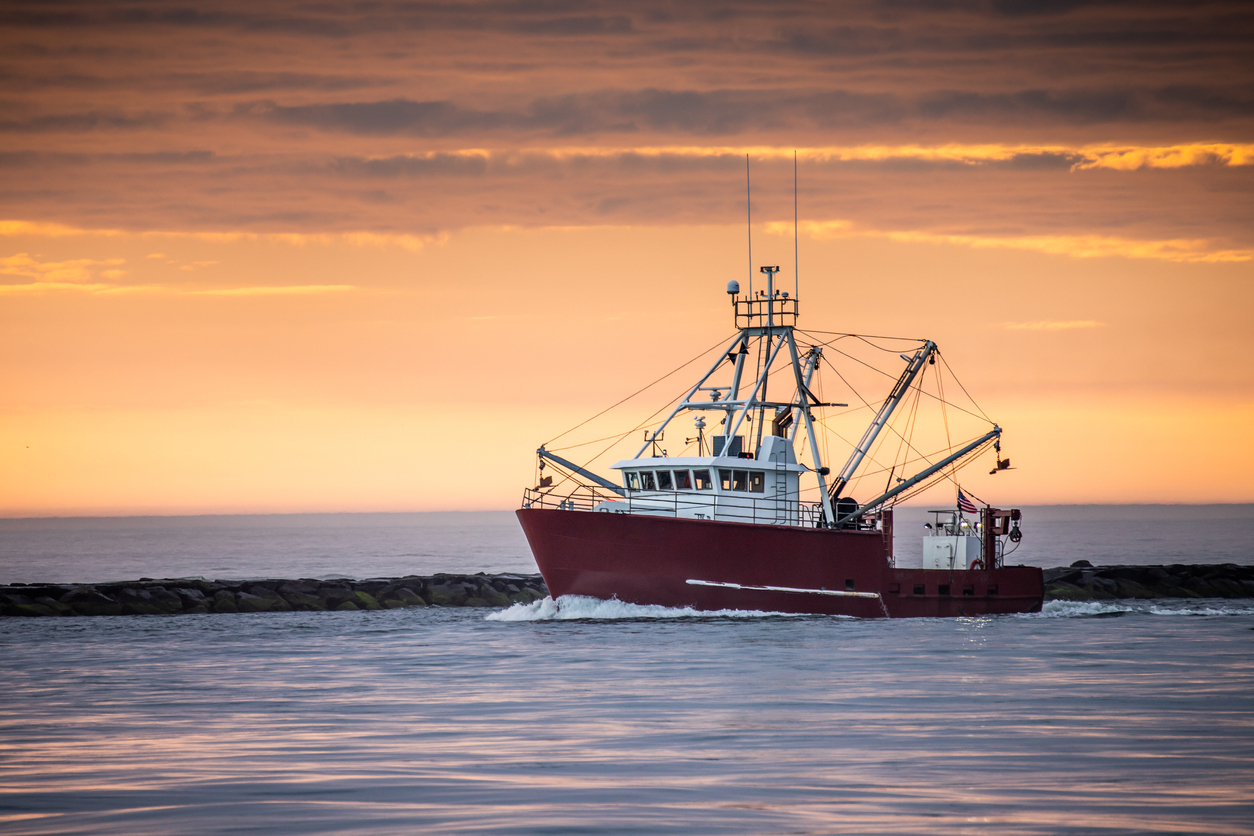Here at Airedale Springs, we manufacture springs for a wide variety of industries. The spring is an integral part of modern engineering, and you’ll find them everywhere, but it is not a one-size-fits-all situation.
Different industries require different springs made from materials that suit unique environments. Springs must possess the suitable properties for the job they’ve been designed to do. Good spring manufacturers must be experts in understanding the different applications and circumstances in which springs are used. Today we’re going to look at springs for the marine industry and explore the materials and properties required to ensure a spring can hold up in an aquatic environment.
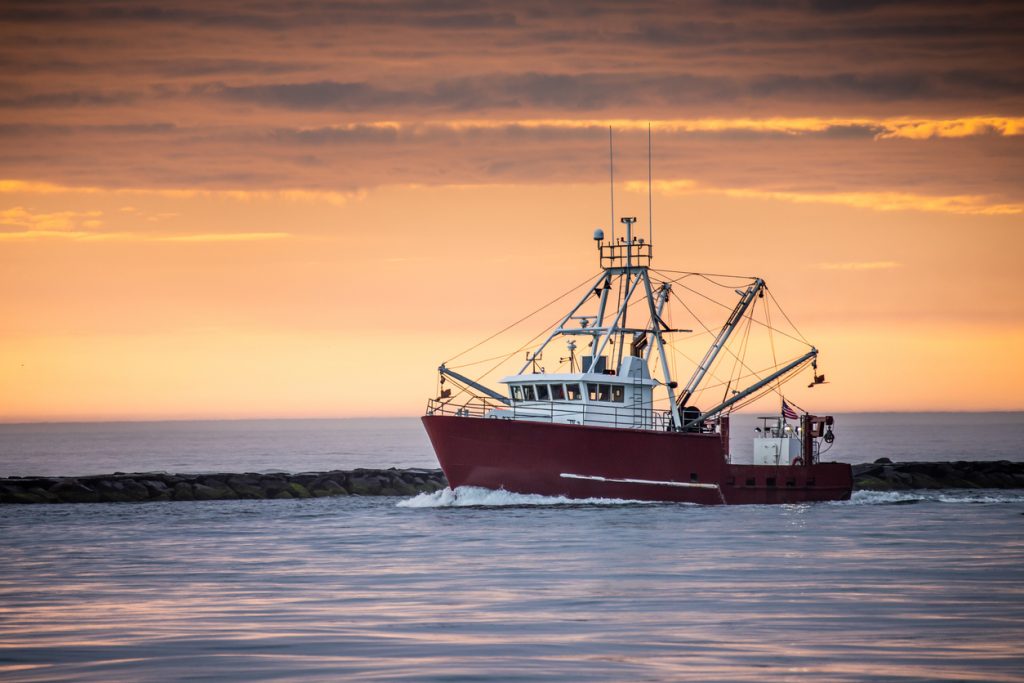
Marine Grade Metals
Springs are used widely across the marine industry, from tiny springs inside fishing rod reels to high-tech, heavy-duty fishing equipment and boat mooring. Marine industry springs need to be strong and corrosion-resistant since they are likely to be required to withstand long periods of submersion in fresh or saltwater.
To achieve marine grade material, special alloying elements are added to defend against corrosion. The majority of commonly used metals can be alloyed to become suitable for marine environments. Common metal alloys and their marine industry applications include:
- Carbon Steel and Alloy Steel – shipbuilding and offshore structures
- Aluminium – boat hulls, boat lifts and docks
- Stainless Steel – marine fittings, marine springs and fasteners
- Copper – water lines, valves and pumps
- Bronze – propellers and propeller shafts
- Brass – pipes, marine fittings and pumps
- Galvanized Steel – marine structures, springs
Each metal has advantages and drawbacks, with different alloys resisting more effectively than others in varying aquatic environments. For example, Galvanized performs better in the cool temperatures of freshwater rather than the warmer saltwater. Saltwater also contains chlorides, which will cause the zinc coating of galvanized steel to corrode rapidly.
The red metals, copper and its alloys, brass and bronze, have excellent application in marine environments as they resist corrosion for a long time. However, they come at a price, often higher than their steel counterparts.
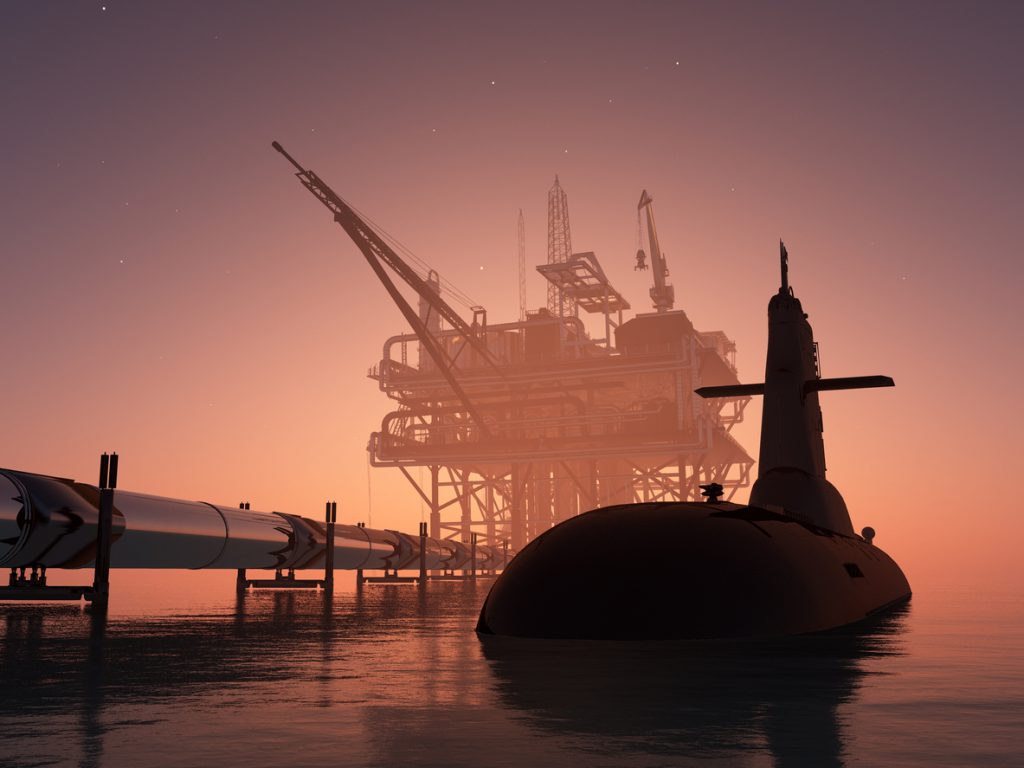
Stainless Steel Springs in Marine Environments
Stainless steel is the most popular alloy for springs and a great candidate for springs that are to be used in a marine environment. Stainless Steel is favoured for aquatic application for the following reasons:
- High resistance to corrosion in water
- High resistance to lower temperatures
- High strength and hardness
An alloy made from iron, carbon, chromium, and other elements is more robust than galvanized steel. Unlike galvanized steel coated in a protective layer, stainless steel’s rust-resistant protection is built into the alloy. Although stainless steel is more expensive than galvanized steel, it will resist corrosion for longer.
When choosing stainless steel for springs in the marine industry, it is vital to look for a high chromium content – more chromium means more corrosion resistance.
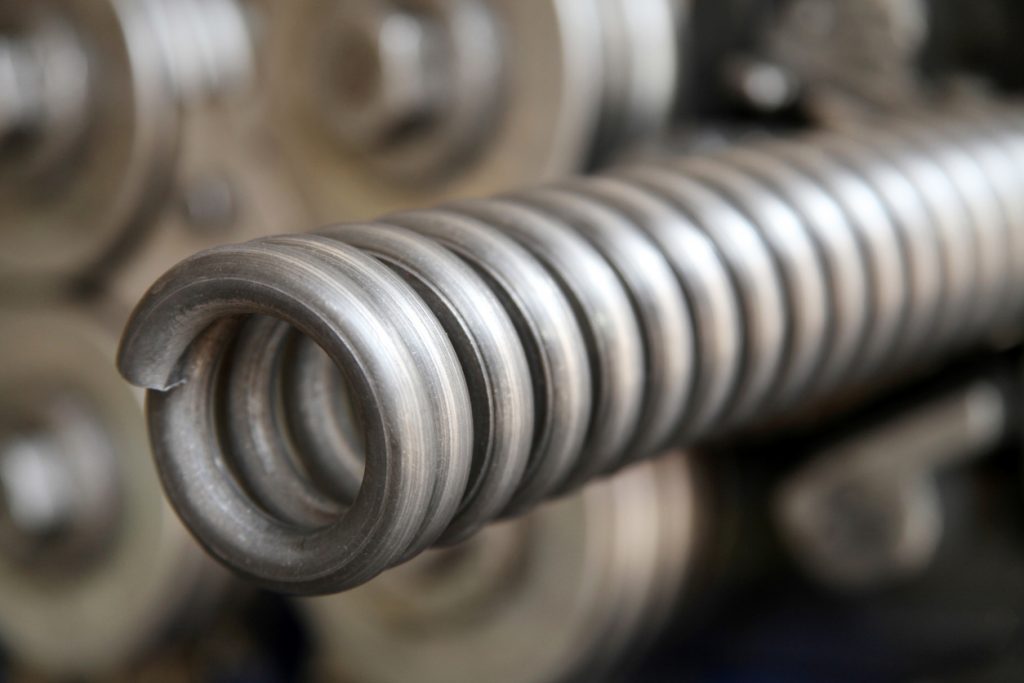
Extension Springs for the Marine Industry
Springs can be found everywhere on boats – from the engines to the sail tensioners. One of the more interesting applications of springs in the marine industry that demonstrates the importance of spring design in specific environments is the extension spring.
The extension spring, or Airedale Prison Spring, is one of the more common springs we manufacture here at Airedale Springs for usage in the marine industry, where strength is of paramount importance.
Traditional tension springs are not designed to limit the length to which they can be extended, resulting in the spring being stretched beyond its elastic limit. This can prevent it from returning to its original size and significantly weaken the spring.
Extension springs like the Airedale Prison Spring aim to solve this issue by introducing two ‘U’ shaped wire forms to a compression spring, preventing the spring from becoming over-extended. As the wire forms are pulled apart, the spring is compressed until all the coils meet, limiting the extension of the assembly and preventing any overexertion.
The Airedale Prison Spring has been used by boat clubs and marinas to enable the safe mooring of sailing crafts whilst allowing for movements of the tide, primarily working as a shock absorber. These springs help reduce tension in the mooring ropes and absorb the excessive strain on them during bad weather conditions.
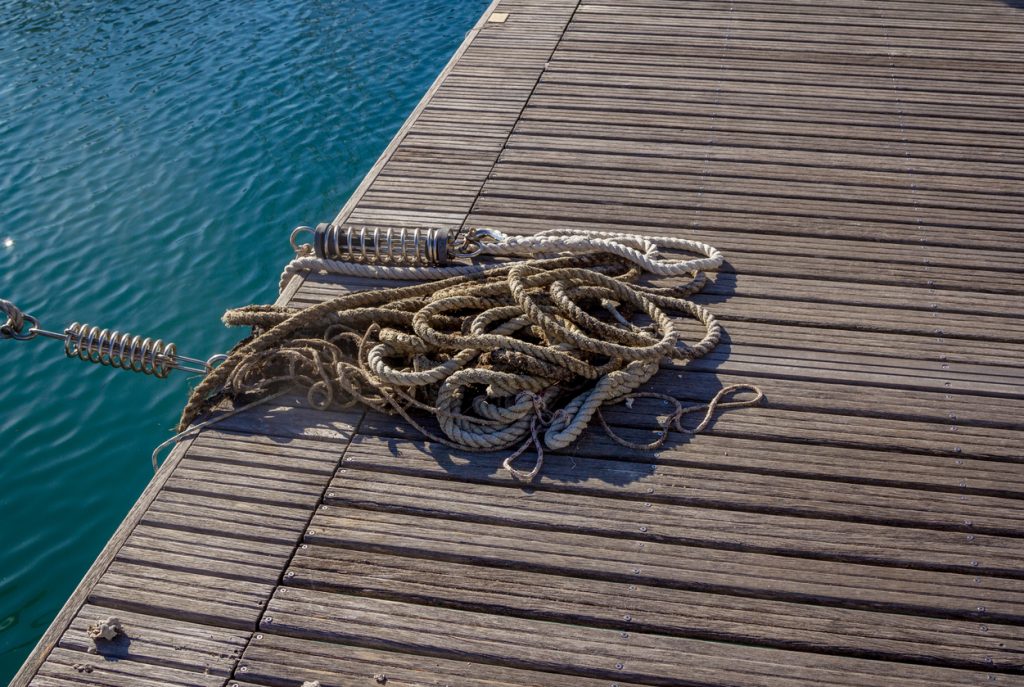
Choose a Spring Manufacturer Who Understands Your Industry
Regardless of which industry you work in, you must work with a spring manufacturer who understands the environment and conditions the spring needs to perform under.
Airedale Springs custom makes a wide variety of springs for use in various applications across many industries. We are expert spring manufacturers with a deep understanding of spring materials, their properties and how they can be applied to different environments. We work with customers to ensure we are providing the correct spring for the proper application. If you work in the marine industry or any other sector where springs are an integral part of your operation, please contact us today to see how we can help.


